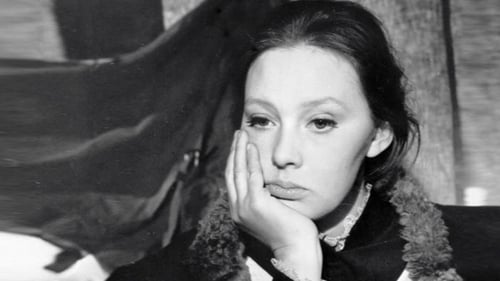Dinko Dinev
Nacimiento : 1924-03-12, Pleven, Bulgaria
Muerte : 2004-01-13

Velik boil Cheslav
Knyaz Boris I reached the most important spiritual insight - the country needed a single language and script. It accepts students of Cyril and Methodius, creating Ohrid and Preslav Literary School. What other nations took centuries, for bulgarians takes place only about 20 years after their baptizing - introduced a Slavonic Alphabet.

Velik boil Cheslav
The picture features the life and deeds of Boris I - strong historic personality, which completes his mission to the full and at the end of his life receives holy orders. Prince Boris I is ruling in the late 9th century. In his youth, he, the brilliant statesman and diplomat, is experiencing heavy defeats in the wars he wages against his neighbors. Nonetheless, he manages not to cede any territories to the enemies. Under his rule, Bulgaria breaks with paganism and joins the Christian community, paying an exorbitant price, a heavy death toll, but there is no other way. The adoption of Christianity in 864 was a historical event of great significance. It guaranteed Boris I much need peace with the Eastern Roman Empire and allowed him to merge the numerous tribes inhabiting the country into a unified nationality and later to found a state. Boris I introduced the Slav script, thus turning Bulgaria into the cradle of Slav culture.

The film is based on a true dramatic story of the fate of a wonderful Russian woman - Countess Yulia Petrovna Vrevskaya, one of the first Petersburg beauties. The events of the movie take place during the Russian-Turkish war for the liberation of the Bulgarian people from the Turkish yoke. An early widowed baroness, having left Petersburg, and having invested all her money in organizing a volunteer sanitary detachment, she becomes a sister of mercy on the front of the Bulgarian war with the Ottoman Empire of 1878.

Predsedatelyat na sada
A lawyer must decide whether to help a young man.

Trifon Palauzov

Polkovnik Ventzislav Pantzeleevski
Captain Lipovanski is badly wounded during World War II. The Germans take him prisoner. After the end of the war, he is set free in a foreign country. He has been deceived that he was sentenced to death as a deserter and that his pregnant wife had died in a Bulgarian concentration camp. He trains for subversive activities against his own country. He is given the codename 'Golden Tooth'. Eager for revenge, he arrives in Bulgaria. There he learns that an agent provocateur has killed his wife, that his child is safe and has been raised in a nursery, and that he himself is respected as a hero. Golden Tooth sets out to eliminate his accomplices. With a file containing valuable documents, the traitors prepare their escape abroad. The spies are caught at the border. Golden Tooth kills the last of the traitors and dies driving his lorry into a precipice.

Strahil is a leader of a rebel band. The Turkish governor abducts beautiful girl Ivana for his harem. The outlaws hold the governor's child to ransom. The governor promises to Strahil neither to attack the peasants, nor to persecute them if he settles down to a peaceful life. Together with Ivana Strahil goes back to his father house... One day a group of people, driven by Turkish soldiers on their way to do forced labor, passes by Strahil house. Women and children wail. Strahil rushes at a soldier and kills him. There is an exchange of fire: Ivana is helping him. A large number of mounted troops surround Strahil's house. His band hurries to the village. Ivana hides in the cellar and fires. She hits the Turkish governor. The rebels rescue Ivana. The governor rises in a last effort and fires at Ivana. Dying Ivana manages to tell Strahil that she wants him to bury her in their favorite glade and return to the band. Strahil raises his hand to take an oath over Ivana's dead body.

Yakimov
A truck driver falls in love with the woman he nearly hit.

Zhelyazkov
The construction of the first socialist town in Bulgaria - Dimitrovgrad.

Nikola Vaptzarov
Scenes from the life and revolutionary activity of poet Nikola Vaptzarov are shown against the background of political life in Bulgaria on the eve of World War II.




